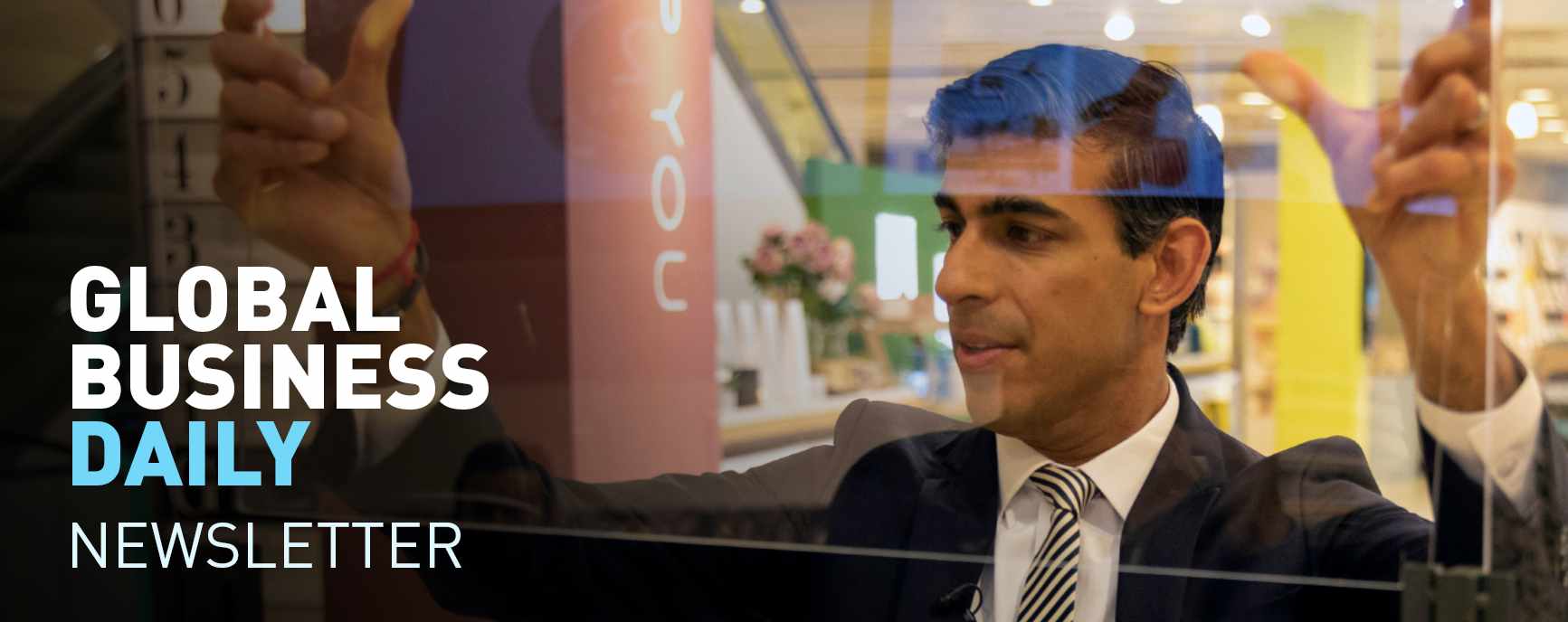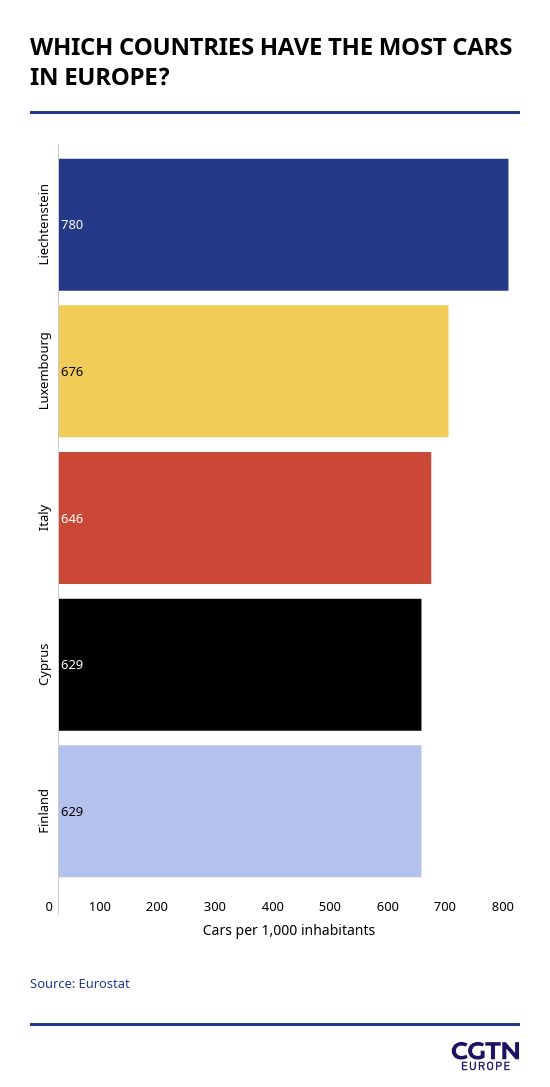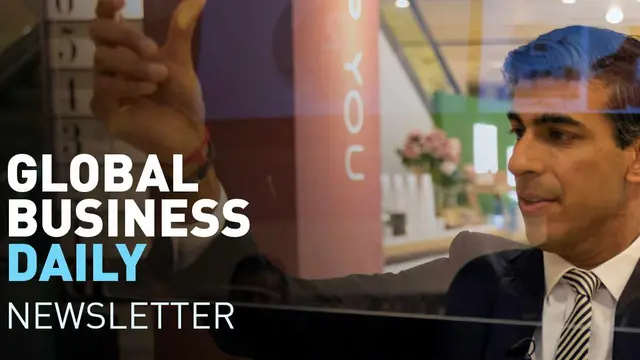"These figures came as no surprise to us because we've always recognized that this [pandemic] wasn't just going to be a public health crisis but also a really serious crisis for our economy."
That was UK Prime Minister Boris Johnson , speaking to the media after a historic fall in UK GDP was revealed by the country's Office for National Statistics.
Of course, the UK is far from the only country to have its finances severely hit by the COVID-19 pandemic and many nations are taking fiscally expensive decisions to stop the virus.
One of those is Saudi Arabia , which confirmed it was considering stopping pilgrims coming to Mecca for Hajj this July. It would not only be a historic moment for Islam but it is also estimated the move would cost the Kingdom $12 billion in lost visitor spending.
Elsewhere, as Black Lives Matter protests continue globally, brands including YouTube, Adidas and Microsoft are engaging with the movement. Some are donating cash, while others are withholding technology from police in the U.S., as biases are confronted.
We have a fascinating interview with branding expert Barrington Reeves today – do scroll down for his insight.
Happy reading,
Patrick Atack
Digital business correspondent
P.S. Did you know we send this briefing by email, too?
You can sign up to receive it here.

The UK economy recorded a record monthly contraction of more than 20 percent in April. The country's Office for National Statistics said it was "almost 10 times" greater than that suffered at the peak of the 2008 Global Financial Crisis.
Global diamond and jewelry sales have hit rock bottom as customers are put off purchases during the pandemic. Production and processing in countries such as India and South Africa are operating at between five and 20 percent , and the downturn has led LVMH to reconsider its purchase of Tiffany's.
**Saudi Arabia is considering canceling the Hajj Islamic pilgrimage **season due to the pandemic. The July gathering at Mecca draws crowds of two million – and reportedly earns the Kingdom around $12 billion a year.
Chinese video streaming service iQiyi has hired Kuek Yu-Chuang as its vice president of international business, as it hopes to expand globally. The hire is a coup for the Chinese service, as Yu-Chuang previously worked for its rival Netflix for four years.
Insurers in the U.S. are pitching COVID-19 as an "unprecedented" event, in order to halt the calls for payouts over lost income amid the pandemic and lockdown. The American Property Casualty Insurance Association estimates the cost to be between $255 billion and $431 billion a month and said only physical damage counts as "business interruption."
Italy's transport minister, Paola De Micheli, said in a statement that a new investment vehicle would be set up to nationalize the Alitalia airline , though the move would only be short-term. Rome is taking back control of the loss-making carrier 11 years after it was sold to private management.
Aldi UK is to extend its nascent partnership with Deliveroo to London after positive feedback from customers on the grocery delivery project that started three weeks ago. The supermarket said customers would be able to pick up to 200 items on the Deliveroo app and receive the goods within an hour.
Air France said it will accelerate its reopening of routes in time for the traditional summer holiday period and is planning to fly to around 150 destinations – around 80 percent of its usual flights. Domestic flights and flights to French overseas territories will be prioritized .
IAG, the parent company of British Airways, has taken its challenge to the UK government's quarantine plans to the High Court – along with fellow airlines easyJet and Ryanair, which have joined the calls for a judicial review.
Microsoft has joined Amazon in halting sales of its facial recognition software to police. "We do not sell our facial recognition technology to U.S. police departments today, and until there is a strong national law grounded in human rights, we will not sell this technology to police," the software company said.
Apple has promised increased spending with suppliers owned by people of black ethnicity, while YouTube has pledged more funding to support black artists as part of a ** Black Lives Matter-motivated push for racial equity in the U.S. and globally** .
Chinese electric vehicle firm Nio is to offer 72 million shares to raise $428 million , according to the U.S. Securities and Exchange Commission. The Shanghai-based challenger to Tesla is traded on the New York Stock Exchange.
04:49

Barrington Reeves is Creative Director at Too Gallus, a branding and strategy agency working with global brands including Red Bull. Reeves talked to CGTN Europe about how brands are taking onboard the Black Lives Matter message and discussed some of the good and bad examples of engagement with the movement. He has also previously helped organize a protest and commented on the argument between activists and those who think protests should be banned amid the COVID-19 pandemic.
We've seen many corporations throwing their weight now behind the Black Lives Matter movement. Why do you think it's happening now?
I think brands have always been conscious of promoting diversity, but obviously with everything that's going on in the world right now, I think the movement has really gained the critical mass it needs for people to be taking real notice of it now. And as you know, being reactionary is so important to brands these days.
You really need to be current. And they really need to be on top of what's happening in the world, which is why we see them reacting to things like Black Lives Matter so quickly.
Do you think that because more companies are speaking out, that increases the danger of staying silent?
I think it definitely has become less and less acceptable for companies to be staying silent on social issues
– and especially when we are seeing huge companies weighing in in such a valuable way, whether they're raising awareness or pledging funds or increasing diversity quotas within their companies. I think it has become less acceptable for companies to be seen to be doing nothing in times like that.
How much are corporations looking internally, looking at their own organization and thinking maybe they should make a change?
I think that is something which is going to evolve a lot more over the next couple of months and certainly over the next few years. Right now, what we're seeing is a lot of brands pledging money and pledging to help the community more.
But I think as time moves on, they will have to turn that lens on themselves and ask themselves some very difficult and uncomfortable questions, like what have we done to contribute to this problem in the past and how can we really affect change in the future? And whether that is increasing the number of a people of color on their staff and certainly right up into the executive management boards, which is where we're seeing a lot of scrutiny in the moment ... a lot of these companies like Disney and such came forward and really support Black Lives Matter.
When we look at their infrastructure as a company, almost their entire senior-level management team are white. And that can't just be because there were no people of color who were suitable for that role, because we all know that that just wouldn't be true.
And I was going to ask then, and in your personal experience, working with companies to transform their brands, what are the biggest challenges that you faced?
So a lot of the challenges we face ... is that we need to help, not just balance what we're bringing and balance what the customers are used to as well, because we want these things to come off seamlessly, but we also want them to be very authentic.
It's really important that everything a brand does comes from an authentic place and it's something that they mean. It can't just be frivolous, can't just be surface level. So if a brand is pledging to be more diverse, that is not simply just hiring a black model or hiring a woman of color who does makeup or hair. It really needs to run deeper than that.
We really need to make sure that they are creating a great experience for people of color and that they are actually enriching the communities that they're looking to essentially profit from. And that's a huge point for me, is that you can't just look at minority communities as another avenue for profit. And if you're, you really need to look at how what you're doing is enriching and benefiting them as well.
What advice would you give to the BLM movement to come up with an alternative way of getting their message across?
I don't know if I would! I'm quite happy with the way BLM is getting the message across. I think it's a great message and it's been demonstrated in real life through protest. And there's also some amazing learning resources out there, which people are spreading through social [media].
Is it affecting the Black Lives Matter movement, their message, by going against government advice on protesting?
It is definitely a tricky one and, myself, particularly when we were organizing the protest on Sunday, there obviously were strict government guidelines that it shouldn't be going ahead.
But at times like that, you simply just can't ignore it.
Racism is a pandemic that we've been suffering for 400 years. And while people are scared to leave the house to go to the shops. Well, black people have been scared to leave the house for fear of being murdered or being racially abused for hundreds of years.
So, the effect that COVID-19 has is a drop in the ocean compared to the trauma that racism has caused for the last 400 years. So, although it's not ideal that the two pass over and cross-over, I think we just have to take on the chin. We can't simply delay a full civil rights movement because there is a pandemic.

 简体中文
简体中文






